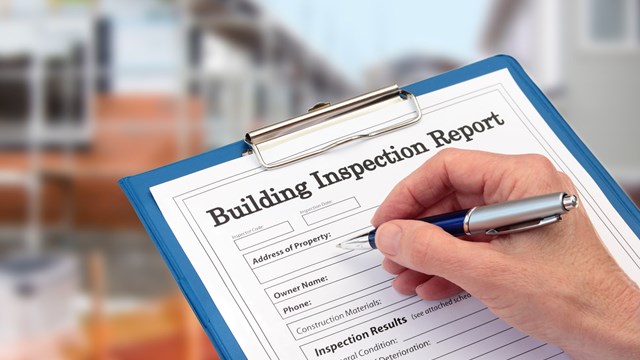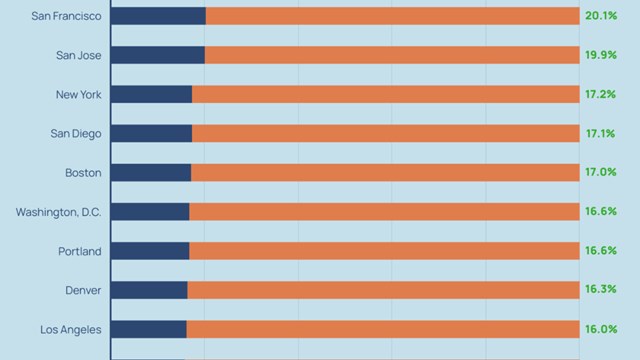There are as many different kinds of co-op buildings, condo associations, and HOAs as there are people who live in them. Different types of communities often have very different ways of hammering out policy and directing their own day-to-day business, but there are a few constants that every community—regardless of size or demographic—must address.
One of those is the annual budget, and as most board members and trustees of HOAs and condo associations aren't licensed accountants by trade, spelling out the fiscal year and balancing an entire community's books can be a rather daunting task. While most any board or association can benefit from the advice and guidance of a financial professional, the following information may serve to bring up some talking points to take up with your own team of professionals at your next meeting.
Whose Job Is It?
Generally speaking, it's the board of directors' fiduciary responsibility to prepare the budget for their community association or building. If an HOA uses a management company (and most do), the management company and the board—or if it's a large community, the board's appointed financial or budgetary committee—work together to develop a workable budget.
There are variations on that theme, of course. According to Karen Sackstein, CPA, an accountant working in Fairlawn, "Normally, the budget is prepared by the property manager under direction from the board, depending on how large the association is and how involved the accountant is in the operations. The budget is usually prepared two or two-and-a-half months before the end of the fiscal year so it can be tweaked and ready to go on the first day of the New Year."
According to Jules Frankel, CPA, MBA with the accounting firm of Wilkin & Guttenplan PC in East Brunswick, "A management company's responsibility is putting together the primary budget. The budget is normally reviewed with the board or finance committee before it's finalized."
But what are all these accountants and committees agreeing upon and finalizing? According to Frankel, "The steps in putting the budget together usually include getting the year-to-date actual report; projecting what you think you'll need for the rest of the year; looking at what changes you anticipate for the following year; and putting the budget together for the following year."
Show Some Reserve
Which brings us to what is generally agreed to be the single most important item on an association's budget planning docket. For the most part, respective financial plans for co-ops, condos, and HOAs don't differ radically from one another, but there are a few points at which the three do diverge. In an HOA—given that each homeowner is solely responsible for maintaining his or her home and lot—the budgeting process may be slightly less arduous for the board than it might be for a more involved entity, like a co-op board. Beyond that, the processes are not dissimilar.
Says Frankel, "Often in the HOA, the common elements that the association is responsible for are significantly less. In an HOA, often the physical structures of homes and roofs, siding and so forth, are often—not always, but often—the responsibility of the individual homeowner. So certain reserve replacement fund items that are typical in condos might not happen in an HOA."
Reserve funds are the primary source of money for important repairs and capital improvement projects undertaken for the good of the community or association.
According to Ferullo, "The capital replacement reserve fund consists of major components of buildings, site improvement, equipment and recreational facilities. Building [features] would include roofs, siding, balconies, patios, elevators, gutters/drain spouts, and interior common areas. Recreational facilities would be things like pools, tennis courts, exercise equipment, and common furniture. Site improvements are parking lots, roadways, sidewalks, curbing, retention basins, and entry gates. Then there's the equipment for maintenance, transportation, and the office."
"The reserve fund is set up to cover any sort of long-term capital projects," says Sackstein, "and what those are is really going to depend on the nature of the association. If you have a high-rise building, for example, you'd have a lot of items [covered by] the reserve fund, because there's common plumbing and heating. You're going to have an elevator. You're going to have issues with hallways. Typically, the larger the association, the higher the building, or the older the association, the larger the annual reserve fund."
While thriftiness is generally a virtue where community budgeting is concerned, Sackstein cautions against penny-pinching when it comes to your reserve funds. "There's often some confusion about what's needed in the reserve fund," Sackstein says. "It's an area where a lot of associations have board members who are not as fiscally responsible and tend to think, 'Well, we have plenty of money for a rainy day - why do we need to put away $50,000 a year into the reserve?' There's often resistance when the engineer [who prepares your annual reserve study] says you need 'x'-amount each month for your reserve. The association should incorporate that exact amount into their budget. It's an area where board members tend to skimp."
Other Sticking Points
But how can you tell a reserve expenditure from a common repair cost, or just the everyday cost of maintaining your property? "Many board members have a hard time differentiating between a maintenance expense and reserve or deferred maintenance expenditure," says Ferullo. "Major repair or replacement of items included in the engineering report should be charged to the reserve fund, whereas routine maintenance and repairs should be budgeted for in the operating budget. For example, maintenance and repair items would include minor roof or siding repairs, whereas roof or siding replacement would be considered a reserve fund expenditure."
According to Frankel, boards and finance committee members should ask their financial advisors, "How are we setting aside money for replacement funding? In particular, how often should we have an engineer update our reserve study, and what type of funding mechanism should we be using, and what are the pros and cons of each one?"
The options for reserve funding budget mechanisms include full-funding; setting a goal of attaining and maintaining reserves at or near 100 percent funded, threshold funding; establishing a goal of keeping the reserve balance above a specified dollar or percent funded amount, and baseline funding; establishing a goal of keeping the reserve cash balance above zero.
Some Helpful Tips
According to the financial experts, there are a number of things you and your board can do to make the budget-drafting process—and the process of staying within that budget—a little less unnerving from year to year.
According to Ferullo, "Start the budgeting process early enough to do a thorough job, and assign the responsibility of obtaining bids, gathering historical data and so forth for specific budget categories. Monitor current year actual costs as compared to current year budget to identify areas with significant variances—and don't create too many individual budget line items. A rule of thumb is that if an individual budget line item is less than one percent of the total budget, combine it with other smaller items."
Sackstein adds, "The most important thing to have is historical information. If the property manager and/or the accountant can provide the board with historical information on expenditures, it doesn't guarantee what future expenditures will be, but you can use that information as a tool to prepare the budgets going forward. It saves some time."
"Involve your accounting professional where there are complex issues," advises Frankel. "Another point is to be realistic in what expenses have been accrued in the past, and being realistic in projecting future expenditures so as to avoid dipping into the operating fund."
Common Slip Ups
Volunteer or non-professional boards—even those with sterling intentions and a strong sense of due diligence—can make mistakes. Some are minor, like ordering twice as many tulip-bulbs as are needed for the beds around the tennis court, for example—and some can have serious consequences for a community's fiscal health.
One common site for screw-ups and miscalculations is contracts for larger projects and capital improvements. "Make sure that inflationary schedule increases are among the budget expense items. Some inflationary percentage needs to be included, because costs of construction, landscaping, and financial and legal services don't go down—they only go up." says Sackstein, "We're not looking at 10 percent inflation, but even if it's a two percent increase, if you have a tight budget going into the new year and you don't allow for that inflationary measure, you're going to get caught short at the end of the year."
Construction costs and legal fees aren't the only things that rise with time, Sackstein continues. Boards must consider insurance premiums as well.
"That's the other place where associations made some big mistakes is by not allowing for the increases in their insurance premiums, which [happened] pretty much straight across the board [last year]. With my client base, the average increase was in the neighborhood of 30 percent. They didn't adequately plan for that, so the combination of insurance and snow removal [from the rough winter] had previously healthy associations scrambling for the money—whether through special assessments, or borrowing. Not having enough leeway and not planning for the unexpected is a huge mistake—there always has to be a little bit of a cushion in a budget."
According to Ferullo, there are a host of other mistakes—well meaning or not—that boards commonly make when working out their budget. Among the worst offenses are:
• Overstating income by using items such as interest income, rental fees, membership fees, late fees, and fines to reduce maintenance fees.
• Under or overstating expenses based on costs incurred in the current year, even though current year costs are not indicative of costs incurred in prior years.
• Failure to segregate funds required to be transferred to reserves or deferred maintenance items.
• Failure to increase assessments to cover prior period operating deficits.
• Failure to budget for income taxes.
• Failure to budget for bad debts.
Budgeting missteps can be avoided, however, by the application of two simple words: Be aware. Be aware of the national and state economy; be aware of the history of your community, both structural and financial; be aware of any plans or projects coming up; and finally, be aware of the concerns and priorities of your shareholders, homeowners, and residents. Beyond a basic awareness, keep a handle on the process so that you can adequately monitor your building or association's current year expenses versus the set budget amounts, and establish and maintain a capital reserve study, so you're not caught unprepared for a major repair or replacement project.
According to Frankel, it's all about learning from your predecessors' mistakes to spare yourself—and your board—from making them again. "A big part of the budget process is getting a year-to-date actual budget and comparing that budget to the year-to-date budget for this year, and see where you're off. That way, you can avoid those mistakes in budgeting for future years."
What it boils down to, says Sackstein, is that co-ops, condos, and HOAs "all have the same budgetary concerns. They want to prepare a budget that's fiscally responsible, that's not too lean in the event of an emergency and not too fat, making them collect more money than they need to."
Preparing the annual budget for one's entire community might seem an intimidating task, but the reality is that with enough lead time, a good dose of common sense, and a reliable expert or two, even a novice board can make sound financial decisions in the best interest of their community.
Hannah Fons is Associate Editor for The New Jersey Cooperator. Interviews and preliminary research conducted by Shirley Sergent.







Leave a Comment